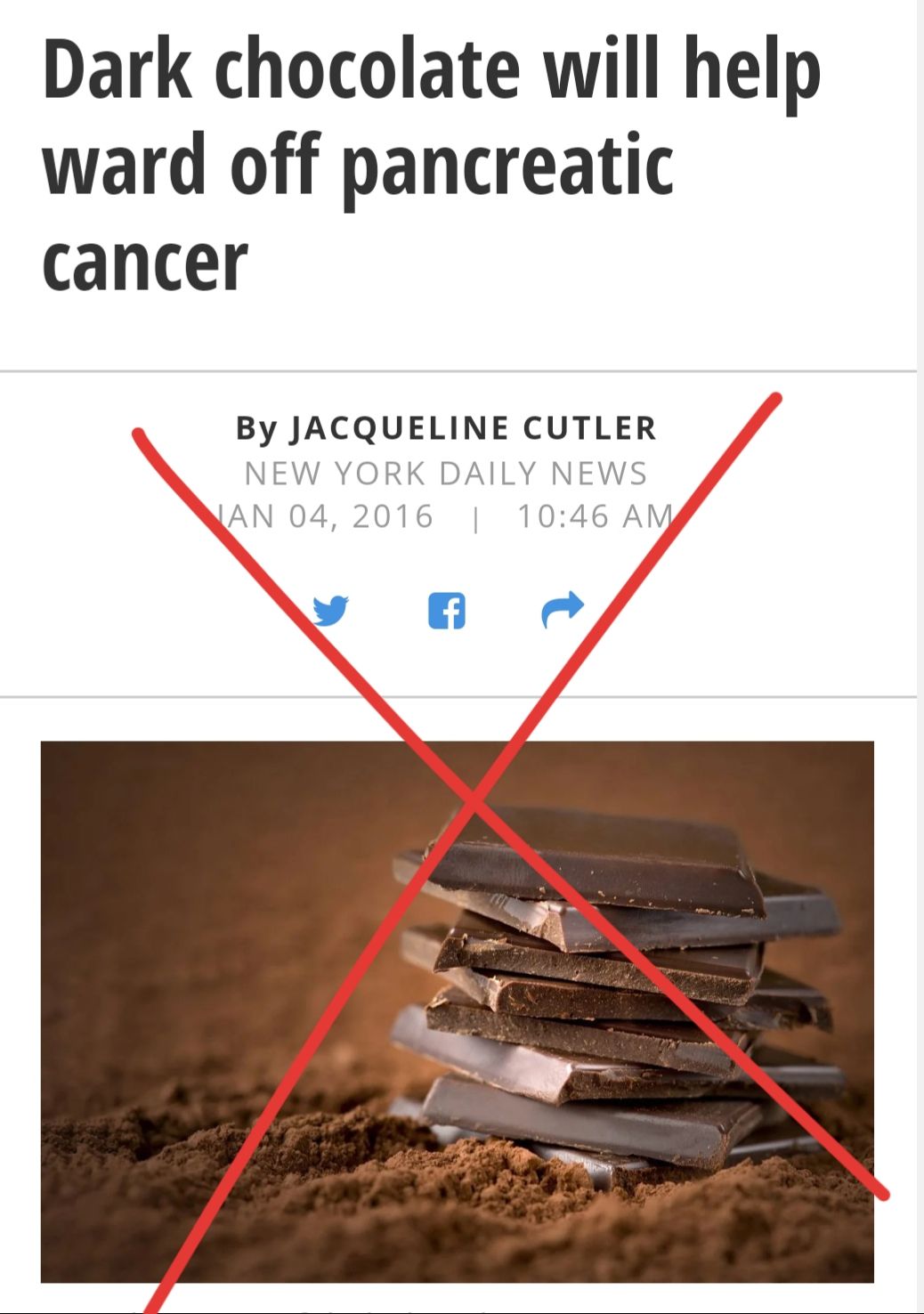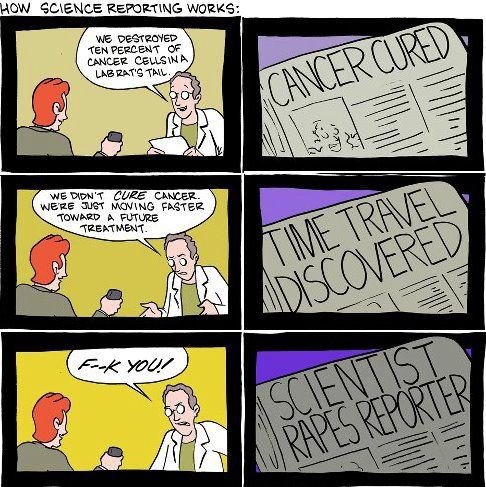Tips To Spot Bad Science Reporting
Every day you can hear crazy science claims, like "dark chocolate will help ward off pancreatic cancer" some claims can be funny but bad reporting is a problem.

How can we make solid decisions about our health and environment like how to vote, what to buy, and what can make us sick, if we don’t understand the science. So with all this crazy info out there, how are you supposed to know which science is legit and what's BS? You can use these tips to spot bad science news.
GLAD
G- Get past the clickbait
L- Look for crazy claims
A- Analyze sources
D- Determine outside expert opinions

Get past a clickbait
headlines often oversimplify or over exaggerated a claim to get a reader's attention like this "blood sucking parasitic hookworms could help make millions of people healthier" you read that headline and think "cool, bring on the parasites" but when you actually read the article you find out that they're talking about a protein produced by the hookworms, not exactly the same thing.
Look for crazy claims
Ask yourself, is this making a crazy claim? If it seems too good to be true, it probably is. The words cure, breakthrough, miracle, and this study proves, are signs that a story might be over hyping the science. Look, we all want a quick fix, but the truth is that science is kind of slow, one study alone is not enough to make broad, sweeping claims. You need a lot of studies to back up your conclusions.
Analyze your sources
What research is the story based on? Science new stories based on research published in a peer review science journal are more legit than a story coming from an organization or person trying to sell you stuff. For example, are you supposed to be surprise that a doctor that sells supplements is also telling you that they save your life?
In case you're wondering what a peer review journal is, this is how it works:
Let’s say you're a scientist and you just finished a study, now you want to get your study out there. So, you submit it to a journal and then they send it out to a group of other scientists to evaluate. If they think it's legit it gets the green light and gets published. Major peer review journals include science, nature and The Journal of the American Medical Association (JAMA)
Just keep an eye for sketchy science journals that don't have the same standards.
Determine outside expert opinion
Does this news story ask outside experts to comment on the research? Good reporting usually involves not only talking to the scientists that conducted the study, but also other researchers that weren't involved. This folks can comment on how the study relates to a larger body of evidence. Just make sure that scientist actually knows what they're talking about. Like having PhD in astrophysics doesn't necessarily qualified to talk about marine biology.
Credits: Youtube [Above The Noise] https://www.youtube.com/abovethenoise?sub_confirmation=1
Thanks for reading.
You got a 3.44% upvote from @brupvoter courtesy of @fanservice!
You got a 4.31% upvote from @oceanwhale With 35+ Bonus Upvotes courtesy of @fanservice! Delegate us Steem Power & get 100%daily rewards Payout! 20 SP, 50, 75, 100, 150, 200, 300, 500,1000 or Fill in any amount of SP Earn 1.25 SBD Per 1000 SP | Discord server